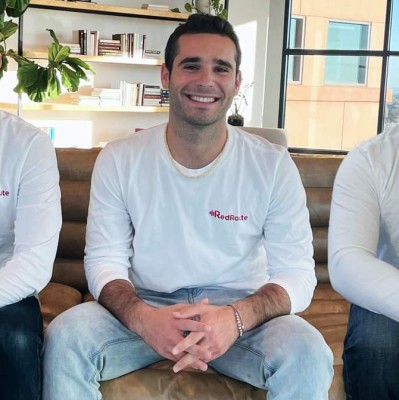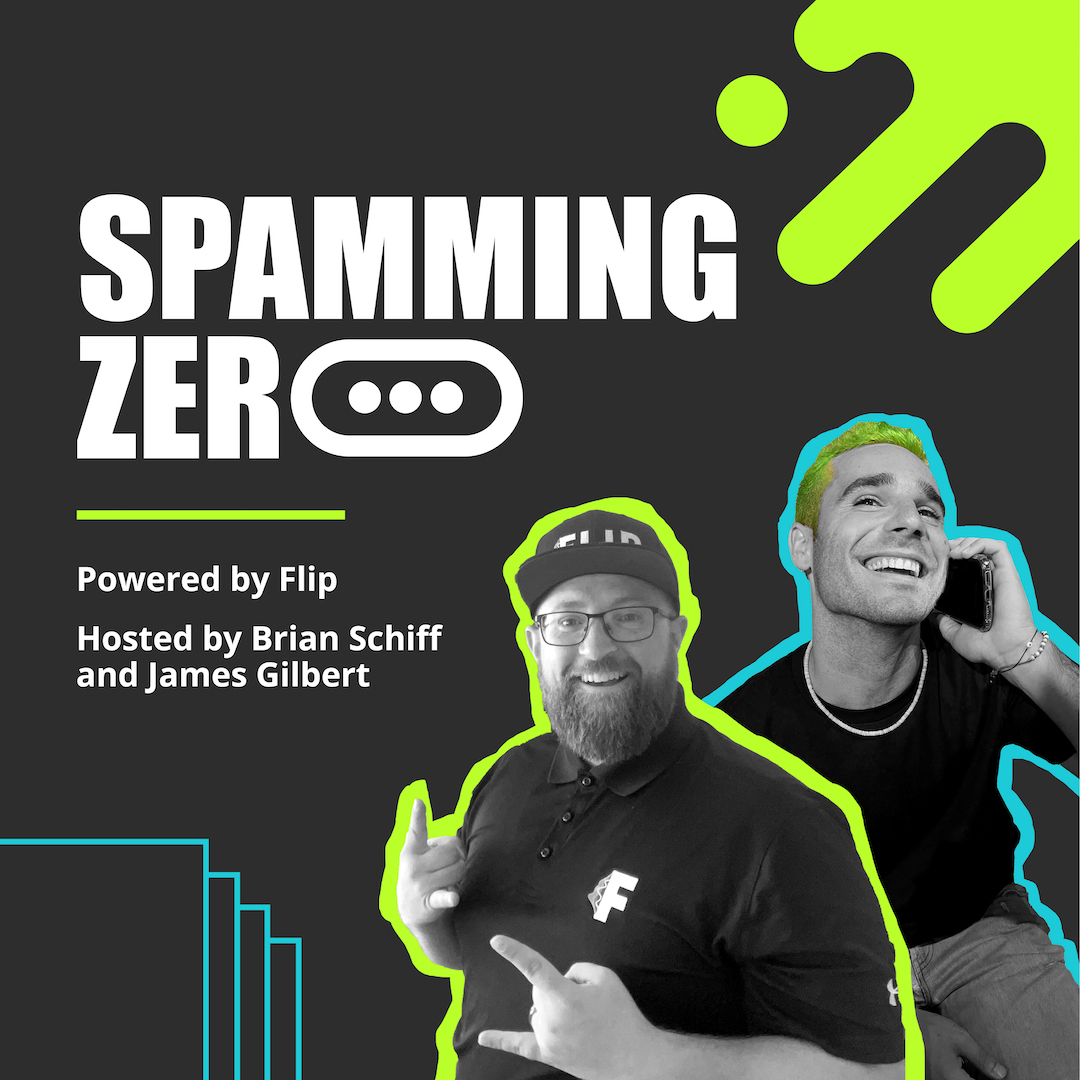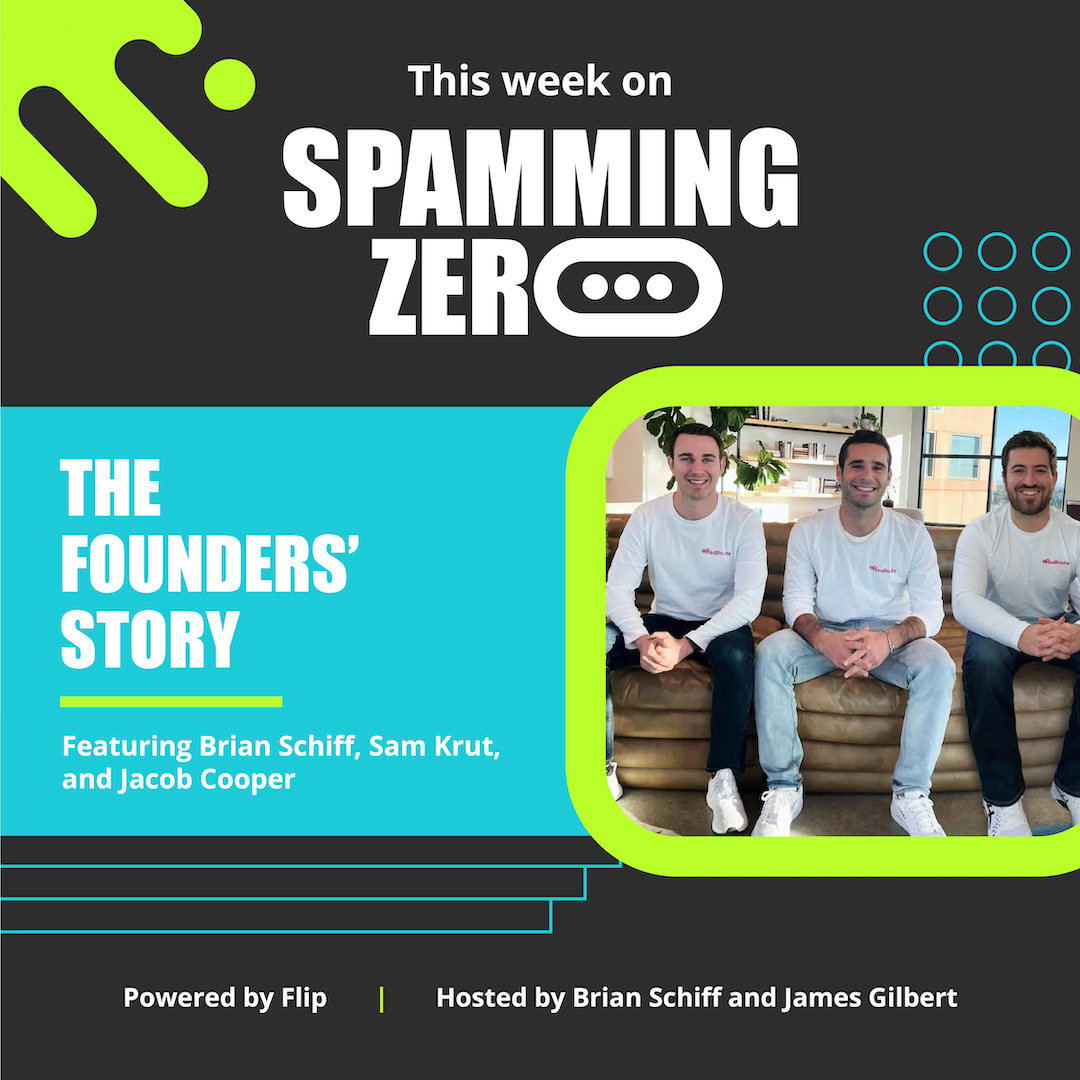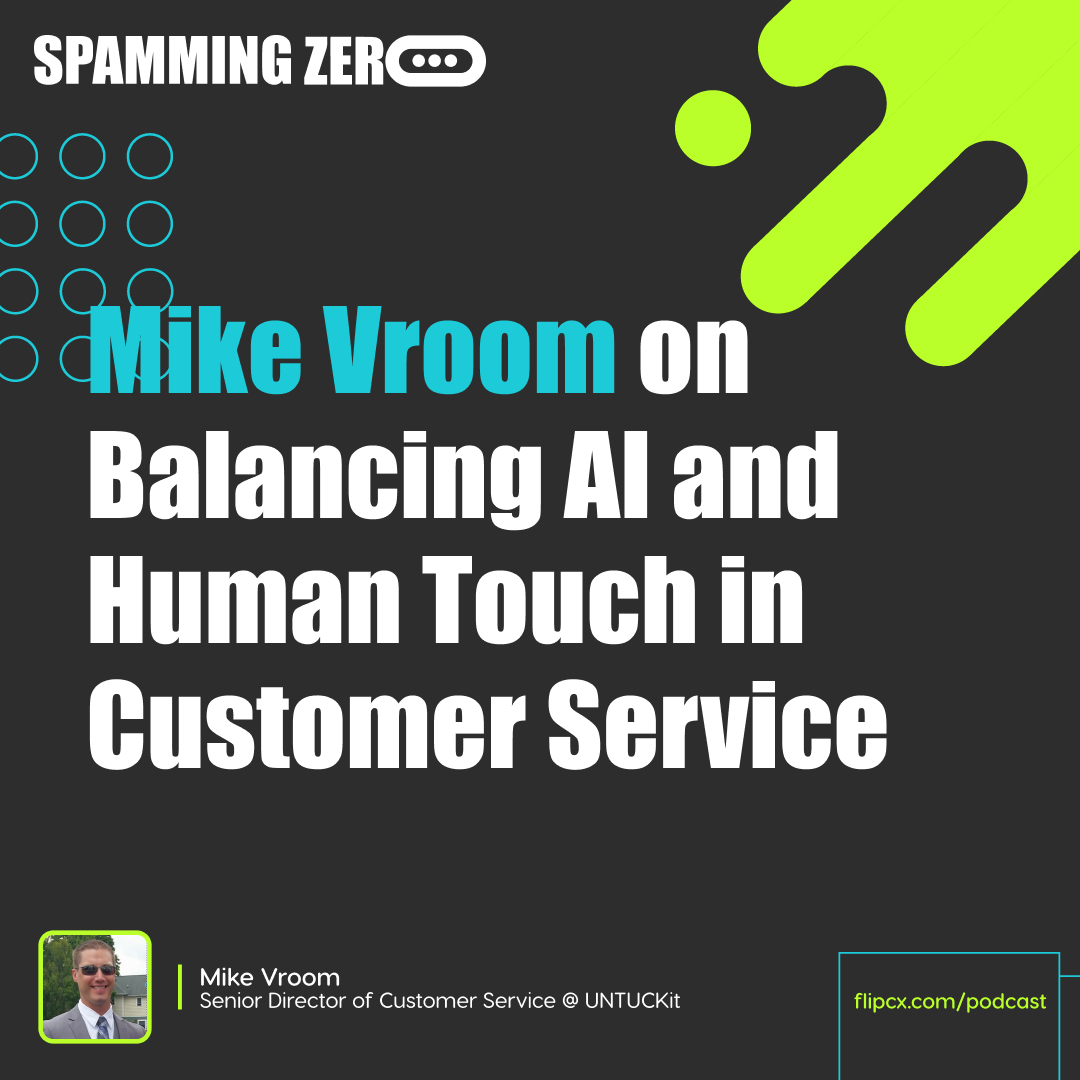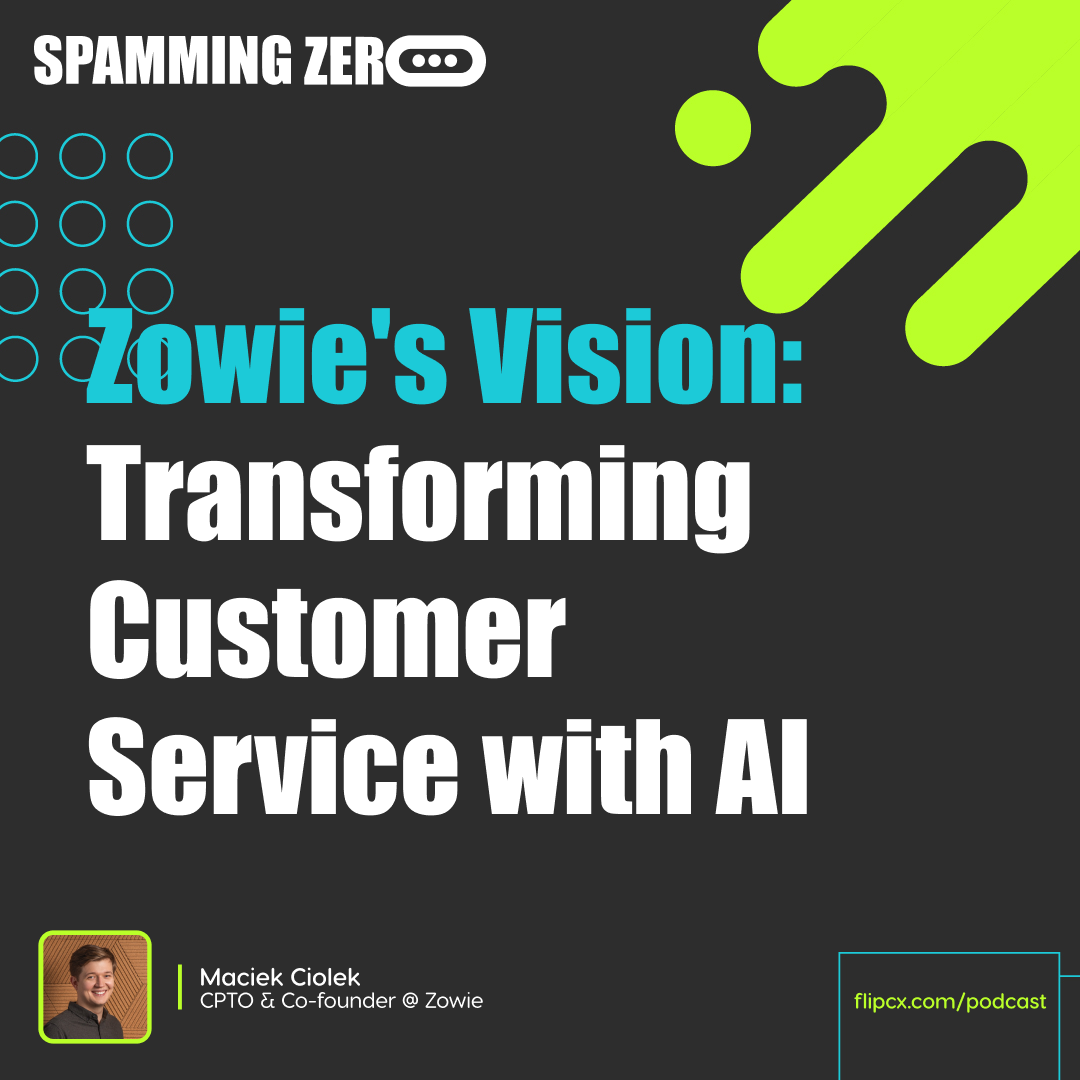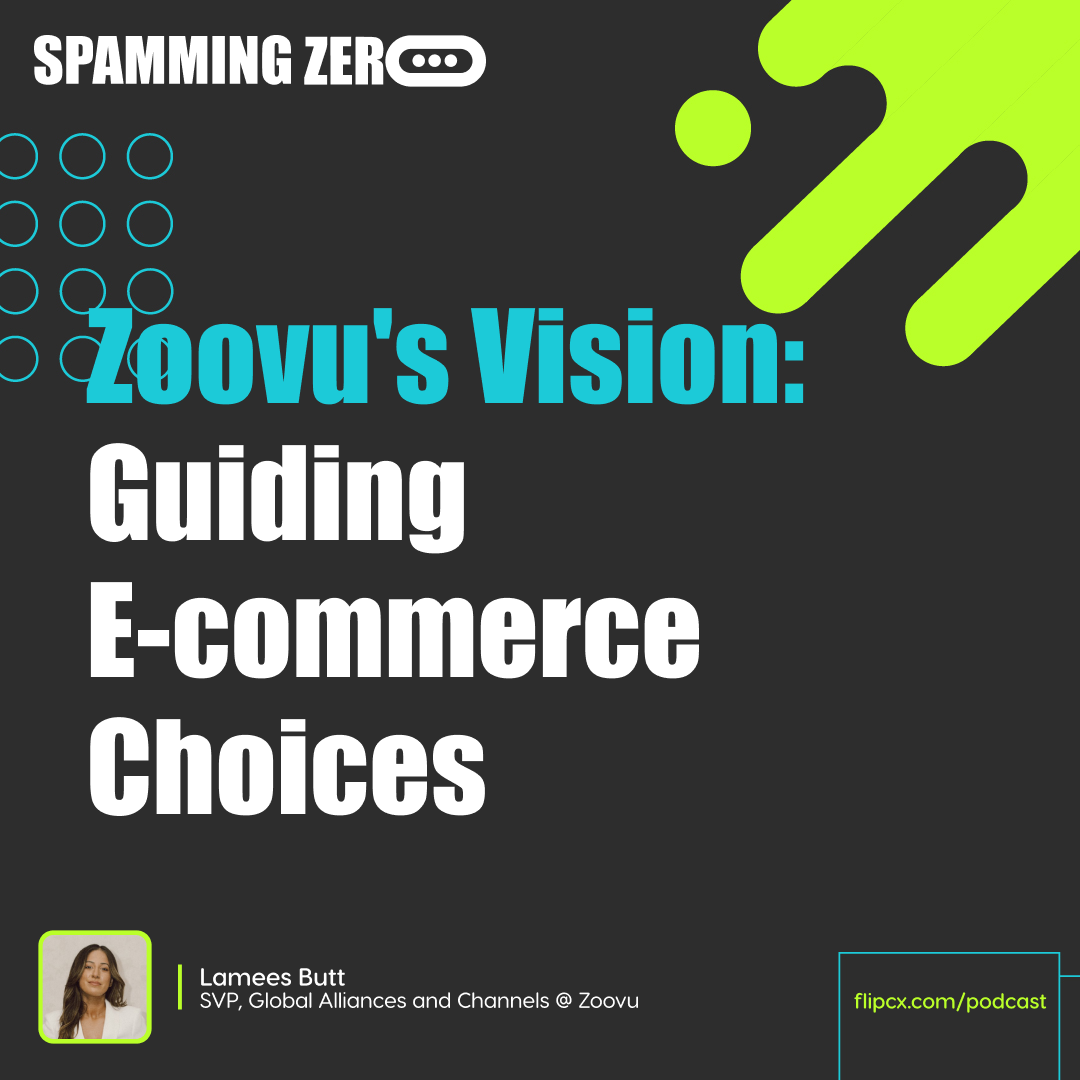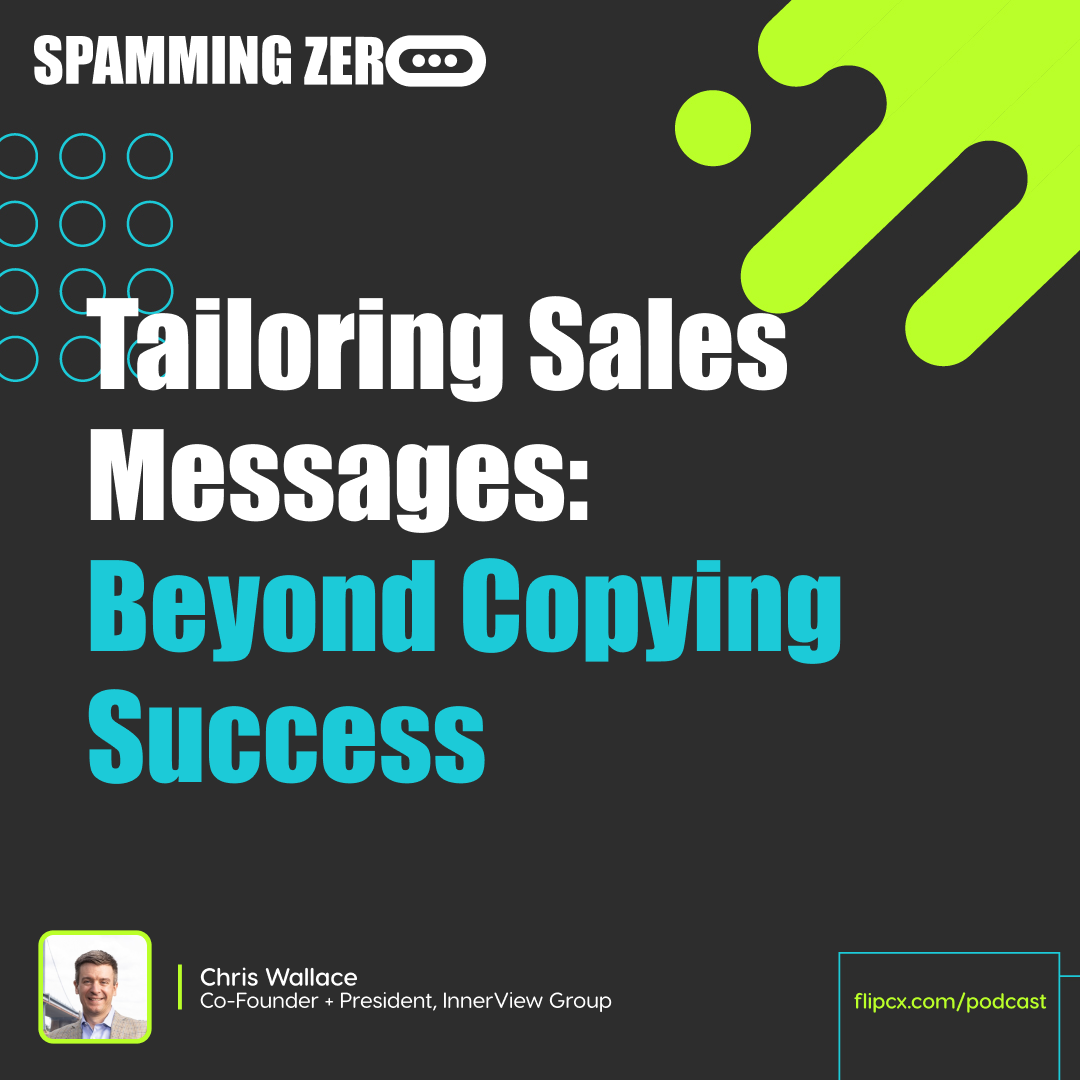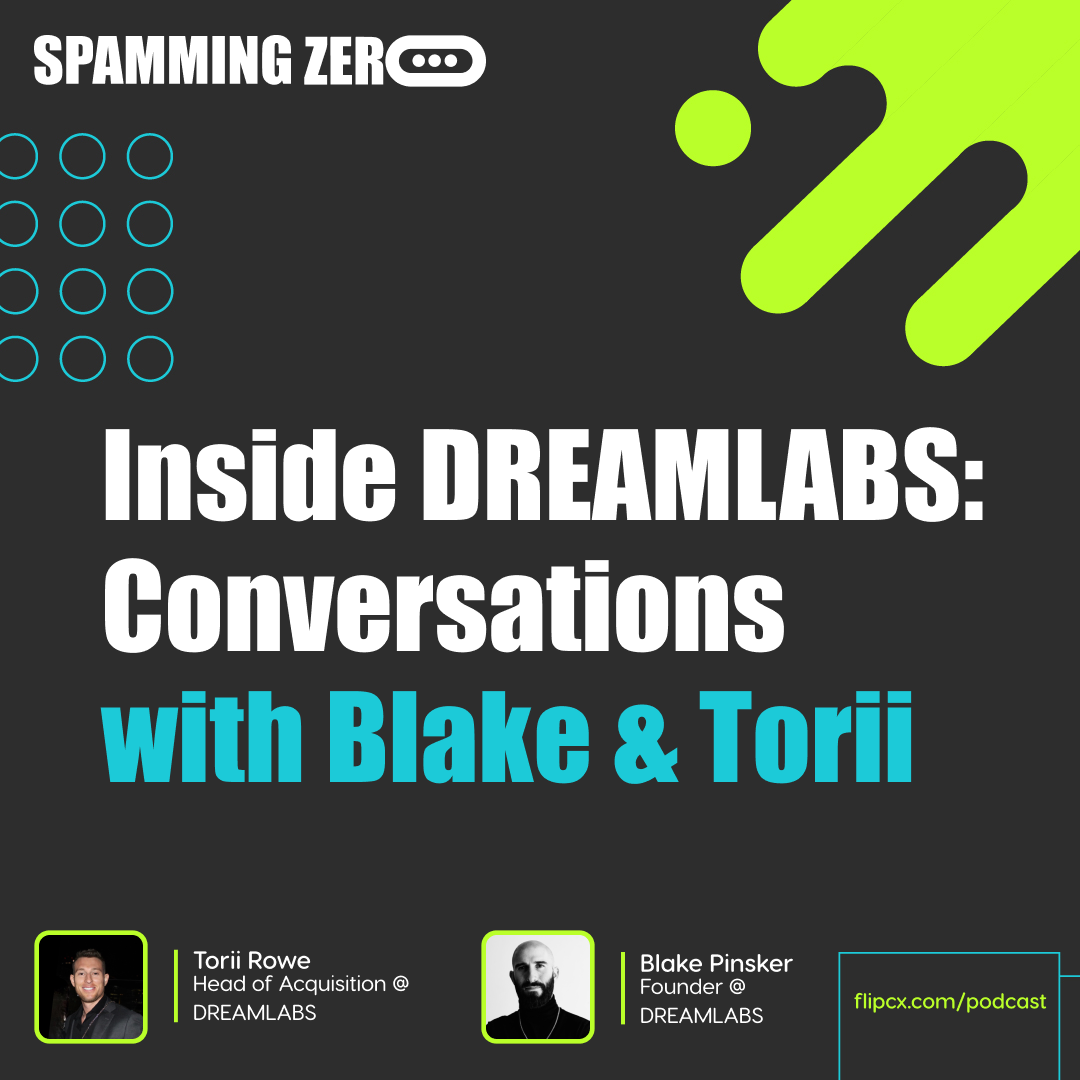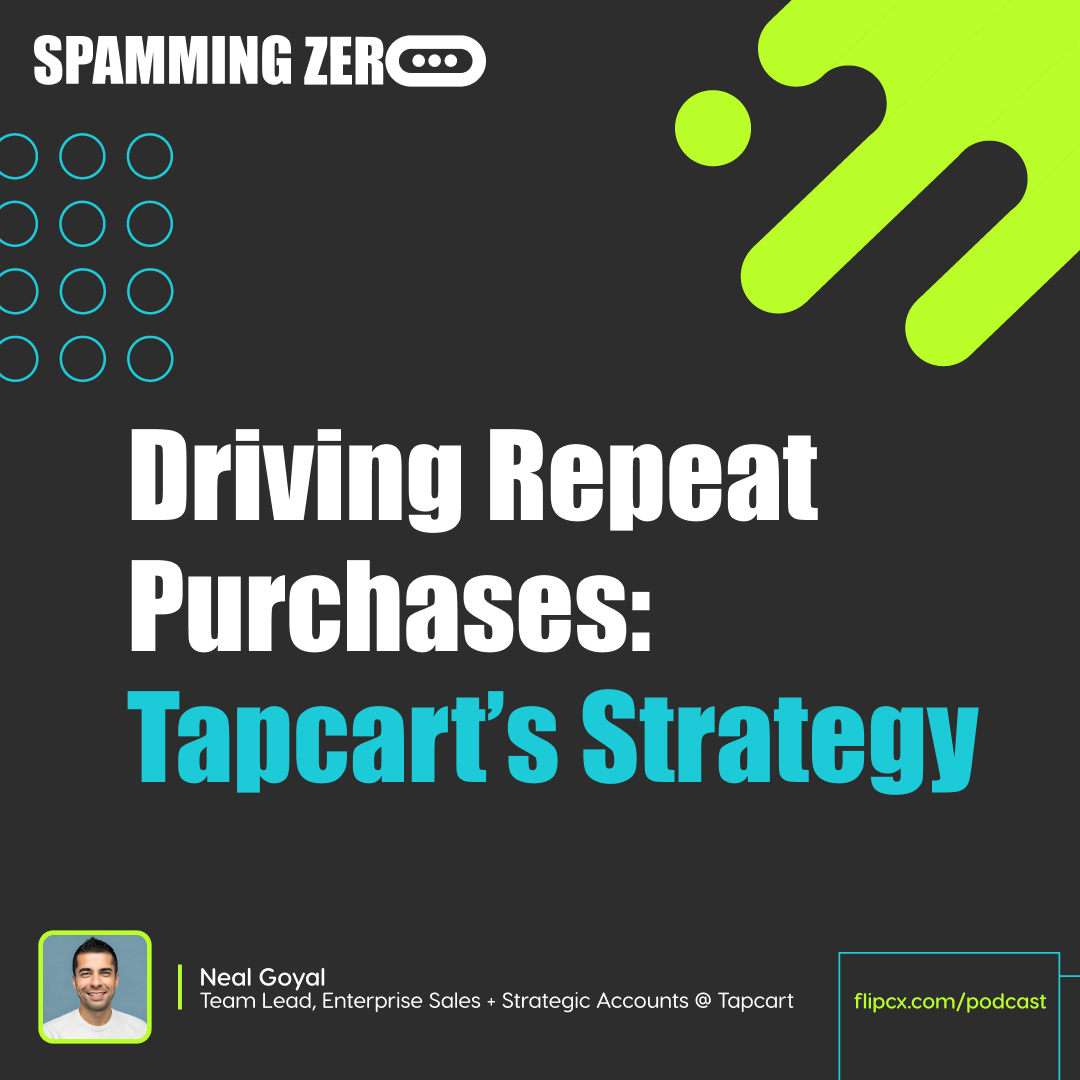Episode 4: Flip (Formerly RedRoute) Founders' Story
- 0.5
- 1
- 1.25
- 1.5
- 1.75
- 2
James Gilbert: I'm James
Brian Schiff: And I'm Brian.
James Gilbert: And this is Spamming Zero. Welcome to another episode of Spamming Zero. I'm one of your hosts, James Gilbert, also joined by Brian Schiff.
Brian Schiff: That's me.
James Gilbert: We are going to be joined by some awesome folks today. We are going to be doing an episode about a founding story. College students who want to start a business, this is the episode that you want to listen to. We're going to be talking about an experience of three college students who started a business that has grown and has taken some funding, that I currently work for. So I'm so excited about this episode, because this is the first time we've ever recorded this for the public.
Brian Schiff: Yeah, it's funny. This is one of those stories that the three of us have all told about a gajillion times, but now we're doing it with a mic in front of us. So it should be fun.
James Gilbert: All right. We are joined by Jacob Cooper. Jacob, welcome to the show.
Jacob Cooper: Good to be here.
James Gilbert: Sam Krut, did I get your name wrong?
Sam Krut: You actually got it right. A lot of people say Krut, inaudible.
Jacob Cooper: I said it wrong for a couple years.
James Gilbert: Welcome to the show, everybody. This is going to be exciting, because I'm genuinely curious about some very specific details that, I don't know, maybe they don't get brought up. But let's start with some ice breakers.
Brian Schiff: So Sam and Jacob, of course we've all been founders for long enough to have felt a couple highs and lows on the inevitable roller coaster. Of all of the highs and lows for each of you, what is the moment when you were really like," Shit, we might be dead"?
Jacob Cooper: Do we have to only pick one? For me, we lost that original client back in June of the first year. We had one client, and they basically said they didn't want to use the system anymore. And I had a full- time job lined up, that I ended up going to and working at night. But I was sitting there like, we're not paying anybody. Besides the intern who was getting, I can't imagine what we was getting, 10, 15 bucks an hour probably. We weren't paying ourselves, sitting there like, we don't have any customers, the product flunked. Should we even bother continuing this? And we're actually probably about five years later almost to the day of when that happened.
Sam Krut: So, I have a tendency to be like very optimistic. I'm definitely on the extreme optimist side of the scale. I can't remember a moment in time where I thought, oh crap, we're dead. I think we showed our resiliency very early on, and so more so there's tons of instances of like, wow, this could be a really big problem. And the fact that it could in theory, lead to us dying was definitely a motivator to really strap on our work boots and get to work. But I don't think I've ever felt a, hey, we're going to be dead. There definitely have been... I remember at one point, one our largest accounts coming to us and essentially having insanely strict security requirements, and wanting a review within like 24 or 48 hours. And myself and Jacob in a 24 to 48 hour period, I don't remember. I think it was actually a 24 hour period, becoming experts on some super fine, in the weeds security thing. And the next day getting on with their security review team, and actually discussing it at length, and going in and out and managing to save that account. I think those are the things that you need to do. And if you are nimble enough to be able to overcome those type of roadblocks, dying is pretty difficult. But I think it's all just a measure of how resilient you can possibly be and how prepared you are for those instances.
Brian Schiff: And I think the blessing and the curse for us is, and we're going to dive into this more, we started this business when we were students. Which has its benefits, and one of those benefits is time. We started working together, and we were able to really... We fell down, it was really a one step forward, one step back, two step forward, two step back sort of situation there. And you kind of take your shots, and that is one of the luxuries, right? We had time.
Jacob Cooper: Well, we weren't putting a lot of time into the business though, early on. Because it was, Brian, maybe you didn't go to class as much as I did. But we had other things to do, we were students. I remember working from usually like 4: 00 PM to 2: 00 AM, getting on with the Ukrainian team at 2: 00 AM for their morning standup, which was like a very small dev team we had doing work over there. And it was just, it was so small and it was just working nonstop.
James Gilbert: Let's talk a little bit about how this story began.
Brian Schiff: So, the story really goes back to we first met when we were early in our time as undergrads, and Sam different from me and Jacob, had had a lot of exposure and even experience in and around startups, and starting companies, and hacking things together, and really was that initial entrepreneurial spark. And then we took it and ran with it, and it was like okay, here we are, we're undergrads. We want to start a business. We have no idea what it's going to be. So we looked around and we said okay, Uber, 2015 is the darling of startup land, but it's not at Cornell where we were going to school, or all these other college campuses. So, we'll just be college Uber. And if we can find a way to build the product, then we'll be able to get all of our friends and everybody on campus to go ahead and use it. So, took that as the initial idea, got the initial team together. And the first thing that we did was we applied to Cornell's startup accelerator program called eLab. For reasons I cannot explain, they accepted us into the program, which was one of those... If that hadn't happened, I think that there's a good chance that none of this would've happened. So God bless them for that one. But went through the eLab process, started building out the product. As I mentioned, certainly had our fair share of fits and starts along the way. But ultimately built that product, launched it in the Cornell market, brought it to a handful of other college towns in the Upstate New York area. And it was great, we had had a very real, authentic rich college startup experience. But then you're getting older and it's like, okay, what are we going to do from here? People are getting postgrad jobs, and as much fun as we were all having, I think that driving my minivan full of shot glasses and car flags from college town to college town, was not really the vision that any of us had. This was 2017. And we again took a step back and we said, okay, the biggest thing happening in tech right now is voice technology. This is right when Alexa and voice controlled everything, cars, TVs, you name it, was starting to take off. And we, through the previous business that we had built, had been exposed to customer service. Just at a very rudimentary level, everybody's had the consumer pain, we got one level deeper than that. Under the hood, seeing how these operations ran for the companies on the back end. And we sat there and we said, okay, on one hand, you have this exciting new technology. And on the other hand, you have this, excuse my language like, big, hairy old problem that has been persistent forever, at the intersection of the two of them lies... And Jacob is cringing if you're watching the video, or not watching the video. But at the intersection of the two of them lies a pretty exciting opportunity to in very simple language, make it so that when somebody calls customer service, they get an Alexa- like experience. So pivoted the business in 2017, built out early versions of the product through that year, and launched it back into the transportation market working with really mom and pop taxi companies. And yeah, that was through our junior, senior year of college. Got the business off the ground, took off from there. We grew graduated, opened up our first office in New York. COVID came, which we'll probably get into a little bit in this discussion. COVID came, that was a... Transportation, one of the hardest hit industries in the economy. So there we were getting knocked back again, and needing to figure it out. At the same time, customer service is one of those horizontal markets that exists across all verticals. We knew we needed to expand beyond, and e- comm really became that next step for us. And we've been growing ever since, closed the big funding round earlier this year. So, I guess one of those dorm room, double pivot, COVID, somehow made it out the other side. And I certainly come back to the resiliency word that Sam mentioned.
James Gilbert: All right. So let's get a little bit personal here: who fought the most out of you three? Come on, fess up. Jacob, who was the instigator?
Jacob Cooper: We definitely shared that title, but in my defense early on, Brian and Sam definitely argued more than I argued. I think that's fair too, maybe not now, but definitely early on.
Brian Schiff: So Sam, the first office that we ever had was a little converted apartment in Soho, and we had a couple-
Sam Krut: That's such a great story.
Brian Schiff: We had a couple of interns with us that summer when we were there. And there was a particular heated conversation that went on. You want to tell that story?
Sam Krut: Well, I think it's first best to preface it with, Brian and I got very close very quickly, and we spent a lot of time with each other. And I think we're both just, yeah, we got very comfortable. And whoever says that fighting can't be productive is wrong. I think there is productive fighting. And Brian and I got into this kind of, it just worked for us, where we'd have a two hour long phone call. Absolutely just go at each other, never personal, always purely business, talking about ideas and so on. And then we'd come out of that phone call, and we'd have great action points and next steps, and we'd find middle ground. And I think Jacob, you really early learned, all right, they're going to do one of those. You'd go like," All right, guys, I'm getting back to work." Let us argue for two hours and we'd DM you," Hey, this is the outcome." And you'd be like," Awesome." And we had this one intern that, it was structured, it was like a Soho penthouse that I think... I don't know how we managed to get for pennies on the dollar on some sublease, I think the company went under. The bottom floor was a converted office, the top floor which was supposed to be a bedroom, was the conference room. And there was a meeting, Brian and I get into one of our classic arguments. I don't even remember what it's about. Everybody packs their bags and goes downstairs, kind of knows the drill. And this intern decides to stay. And then he starts mediating it. And Brian would say something at me and the intern would go, I think he was like a sophomore in college. And he'd go and say something like," That was a great point, Brian. Sam, what do you think?" And after like five minutes of this, Brian and I both turned to him and were like... I don't even know if we said it nicely, like," Get out of here, man." And I think he got the idea and booked it, but it was definitely an interesting situation. Props to him to have the guts to stay in that room, because everybody else left.
Jacob Cooper: He was staying in that room. We had multiple people sleeping in there all summer, basically.
Sam Krut: Yeah. That did happen as well.
James Gilbert: So, I'm a young college student. I have no idea what I'm doing, but I know I have a good idea. I have a good product idea. I have really strong ambition. I have the entrepreneurial spirit. What should I be asking myself?
Jacob Cooper: This was not my idea originally. I actually didn't know about entrepreneurship, I was a bit different than these guys. Until later, I had not been... Sam was exposed to it really early on, I had never heard of it for God knows what reason. And sort of stumbled into it, but really if you like to basically own things right. And not in a narcissistic way, but you feel very passionate about an idea that you have. It doesn't have to be the big idea for the business, but you are going to work hard and communicate. And honestly, it really comes down to working hard and trying to collaborate, and not being an asshole. You don't have to have a big idea, there's lots of people who have great ideas out there. It's great if you have that. You definitely want more people, not a big team, but if we didn't have the three of us, if it was just two I think it would be a heck of a lot harder. I can't imagine trying to be the solo founder of something, unless you had a lot of money backing you. Find a couple people who are going to work just as hard as you, and who you're not going to mind spending long hours with, and just see what you can do. Try not to say no early on, and go from there. But you don't have to have that big idea. It was honestly, entrepreneurship is the most exciting thing, working on RedRoute, or it wasn't really a company barely at that point, more like on nothing. That was the most exciting thing that I had done in school, for sure. And I also think I learned the most doing that. No disrespect to the professors or anything like that, but I got the most out of this for sure.
James Gilbert: What about you, Sam?
Sam Krut: So I think when, whether you follow inspirational startup pages online, or where is it? Everybody says a few of things that parallel each other. One, founding team, and how important that is. Early hires, how important that is, how hard it is. It you're not going to work hard, you're not going to succeed. But there's one piece of advice my uncle gave me very early on. I have quite a few people in my family that come from entrepreneurial backgrounds. And he told me," Just remember, an idea is only as good as the execution of the idea." And I think you speak with early founders, and somebody comes especially through the app boom, which seems like it's slowing, or it did slow over the last few years. The first thing everybody would do is go into the App Store and see if their idea already exists. And oh, this one might have three stars or this one might have two downloads, and then completely drop their idea because somebody has done it. But the reality is you can have 10 people try the same thing, and one's going to be the unicorn and everybody else is going to fail, because it's all about how you execute. And so, the question I think you got to consistently be asking yourself is, the reality is you're not first to market. Somebody has tried this, whether it be in a dorm room project, whether it be in the garage, whether they got a few customers. Why did they fail? What are you going to do different? And why are you going to succeed, and what portion of your execution is going to drive that success? So I think the biggest piece of advice I would give any founder is really think about how you're going to market, and what's going to differentiate you from anybody else. And especially somebody that has tried this and failed.
James Gilbert: Really good advice. Brian, you're up to the plate.
Brian Schiff: Unsurprisingly, before the two of these guys spoke my answer was going to be along the same lines of theirs. When I speak to-
James Gilbert: So lame, come on.
Brian Schiff: Well, no. Hey, that was just the prelude. I was then going to go into an original answer. So yeah, you got to just jump in. That's the part one of it, you got to jump in and just start going. The second piece of it is there's something that kind of floats around out there in startups, and I'm paraphrasing here. It's something to the tune of," First time founders obsess over product, and second time founders obsess over distribution." And it always piques my ear when I talk to somebody that is really day zero, day negative one, and they're already thinking about the distribution of their product. And there's so much excitement about the product, I still have notes in my phone that are literally pages upon pages of feature ideas for the college Uber app that we built, and then moved on from before 10% of those things had become a reality. There's a lot of, in first time founders and founders generally, there's a lot of over indexing on the product side and not thinking about them and as two halves of the same whole.
Jacob Cooper: And then from the product side, the more people who are using it, the more you realize what features are important. And so you don't end up wasting a lot of time either, or at least as much as you would if you just start building feature after feature.
Brian Schiff: The one more that I got to throw in there, if I talk to another founder that the first thing that they're doing and the thing that they're hanging their hat on, is that they ran surveys and people responded to the surveys, and said that they wanted their product. I love talking to founders, I'm not interested in those conversations. You know if you're onto something, and if people want what you're building based on whether they will pay for it, and whether they will use it. And everything else until then... So it's all about optimize for learning, and the first thing that you need to learn is do I have something that people want? And the way that you know if you have something that people want, is whether they use it and whether they pay for it. So that's another, I guess, pet peeve of mine.
James Gilbert: That's some fire right there, Brian. You're calling out a lot of people with that.
Brian Schiff: Yeah. Not sure where it came from, to be honest.
Sam Krut: Remember what we used to say, Brian? We'd launch customers, we'd get a signed contract. And we'd always say that the date we actually know how happy they are, is when they pay that first invoice. You can get a signed contract, you can get signed commercials, a lock- in and so on. But until somebody pays that first invoice, you have absolutely no clue if they loved your product or not. We get so paranoid about the date that first invoice is sent out.
James Gilbert: Okay. So gentlemen, one of the things I'd like to know is when you look back at the very beginning of starting this company, and maybe even Sam, in your experience from starting the several that you started, what's the moment where you wanted to redo, or what's a failure that you learned from?
Sam Krut: That's a really interesting question. I think there's a few things. One, whether I started this one or others, when we started the company we were really young. And being young, we had something to prove. We were not necessarily taken seriously, and we essentially had to punch our way out of that. And while punching our way out of that, we burned bridges. And you, growing up, probably heard dozens and dozens of times, never burn bridges. But the reality is, I actually don't even know if there was a way we could have gotten necessarily to where we're at today without burning some bridges along the way. But if I could get a redo, and figure out how to not burn those bridges, it would save me a lot of time and a lot of energy, and a lot of work that we had to put in after the fact. And so, what I would say is number one, is there's going to be adversity along the way. There's going to be people that want you to fail, and even do things to make sure you fail. And the way you respond to that, whether you turn the other cheek, whether you fight back and so on. I'm not necessarily advocating for being Switzerland here, either being entirely pacifist, you sometimes need to fight back. But the way you do that and the way others perceive you, whether it's a week from now, two weeks from now, a year from now, or two years from now, it's going to come back. It always does. If I could get a redo, I bet Jake and Brian both agree with me. If we could get a redo and mend some relationships that were hurt along the way, we certainly would do so. And then I feel like every founder has a list of, for me, it's various things we did in terms of going to market, some partnerships we established, some sales motions we put in place that I would've loved to do differently. But the other side of it is, we also didn't know. And you can't really hurt yourself for things, or dwell on things you didn't know about. So of course looking back, I'd love to change some of those things, but at the time I didn't have the visibility that I do have now.
Brian Schiff: I think this is a little bit of a tough question. And it's hard to find, we stumbled at every point you could stumble, but it's tough to not find very direct and influential learnings that came from those stumbles. Which makes it hard to look and say a true redo sort of thing. What I would say is when you get to the place where you have something, and you get to the place where now you have capital to invest in building the business. If you're building a tech company, I guess to narrow the walls to that a little bit, 80%, 70% of the money that you're spending is going towards the team that you hire. And the people are everything. And those hires that you make in the early days, but I don't know if it's ever going to end, certainly hasn't ended yet, but those hires are so important. And I feel like for us, there was almost always more of a premium put on what are the projects, the deals, the things that we're doing inside the business in any given moment? And one of the aspects that got hurt from that was less time was getting put into really being thoughtful around the people that we wanted to bring into the business. And I think that that certainly held us back.
Sam Krut: You know Brian, though, saying that, we had the saying early in, let's just get really smart people into the business and they'll find their place. And looking back at that now, we were blessed with working with some remarkably smart people. But if I could get somebody in the door that has solved the problem in the exact function that we want them in, rather than somebody that is very, very smart, I would pick the person that has solved the exact problem almost every single time. And I think if you look at employees that are no longer with us today, or employees that whether it be fired, parted ways, left on their own accord, it was never a matter of are they smart or are they not? The reality is I think you can test for somebody being smart, but the reality most of the time, it's we would hire really smart people, say they're going to own this function. Most of the time, they had never owned that function in the past. And they either failed, or we very quickly outgrew them. And so, if we can turn around and just have people there, every single time. And it's how we hire now, we don't hire people that haven't excelled in the function that we're putting them in.
Jacob Cooper: I think because especially for people who have been around for longer, obviously junior employees haven't seen that, but definitely people who are taking leadership roles is a big thing. And that was part of my answer, Brian, was going to be like, it's really hard to find people. The hiring process is so short, there's a lot of options out there. inaudible where the company is, and you don't necessarily know what you need in a year, from a person. And it's a really challenging puzzle to try to solve. But the other one, I guess, that I would say is kind of related to Brian's. But we hired very early out of our network, which was great, because people were probably not getting paid much, if anything at all, just like we weren't getting paid much at all. And they were a lot like us early on, and over time we sort of lost that, being able to hire out of our networks very easily. Now, not that we had big networks. It was us coming out, first business, with very little funding. There's just not a lot of support there. But I will say that if you can balance trying to find people who are out there, with people that you know, and people that you trust, the hiring process is so hard and so short that if you can know that the person is good with as much certainty as possible, that's just the movie you want to make. And hiring out of our networks, I think I hired at least three or four of my good friends into the business at one point or another, a couple of them are still here. I would say continuing to grow the network that we all had, and really invest in that. I'm not a big social media person, and did not really understand the value of that. We also weren't hiring for a while, especially during COVID. So you look back like, is that really where should spend our time? But after the fundraise, we came and we were okay, we have to fill all of these roles. And hiring double the size of the team that, engineering and product. I looked around at my network and I was like, I basically hired everyone that I know already. Who would be interested in this? And it would be great to be able to go and revisit that stage. But it was harder to hire the second go around, for sure. We got lucky, we found people who were in our networks later on for some of the roles. There are amazing people who are not in network. It's more of just finding a balance and not having to put all your eggs in one basket.
James Gilbert: Great answers. Jacob, Sam, Brian, thank you for joining us on this episode, and hearing the founding stories from three founders. And I would love it if you guys could give the audience a little bit of a flavor of what the future looks like for each one of you.
Jacob Cooper: I mean, I'm going to be here.
James Gilbert: That's not exactly what I meant. We better all be here. What I mean is tell the listeners specifically, Jacob, from your perspective, what is the world going to look like in a year from now under Jacob's realm at RedRoute? What is the product going to look like? Sam, what is the world going to look like as a co- founder and CRO? Brian, what is it going to look like as a CEO?
Jacob Cooper: A year from now, it's crazy because in the last six months the team has just changed, and the product has changed a lot. And so, it just makes me very excited for the next year. The first thing, which is a couple, a few months away I would say, is the product becoming sexy, as I would put it. That's a big hurdle that we've had with a small team using off the shelf tools. And now starting to build our own for some of the things that really matter, there's a lot more control over the flow and the function of the product. I kind of feel like carrying that into that next step, over the next six months a year, the product will be best of breed. It will be the fastest, most intelligent voice product you can get out there. Also the most fun, which is a huge thing that I prioritize right now. Right now, it does what it needs to do, and people are happy using it. And there's been a ton of stuff that we've sat and have dreamed about building, and said," When we have a team, we can do these things." And not just building it for building's sake, or building this because we think it's going to help more people. Make these calls shorter, and people are going to be happier with the experience, the operator's going to be happier with the experience, our customers are going to see more and more value. But it's really just the product is going to be excellent. Not that it's not today, but even more so. And the value that our customers will see on their callers is going to be just... It's going to be even more of a no brainer than it is today.
Sam Krut: It's actually an interesting question, because I think over the last six months, so much has changed for me. As a founder, you're always balancing working on the business versus working in the business. And even up to late last year, yeah, I'm the CRO, but I'm also head of marketing, head of sales, head of client success, head firefighter as I like to call it. Really just doing everything from making sure invoices get out at the end of the month, to making sure we meet quarterly numbers and everything in between. And over the last six months, we've been so blessed to bring on an amazing head of partnerships. Obviously you, James, in the CMO function. Will, our new head of transportation, and so on. And I think that's just the start. I'm at a point now where in six months I went from being on every single demo we're doing, to finding out about them twice a week. And I think the team, the sales team is still pretty small, pretty nimble. That's going to grow. We have a marketing team, which I'm sure is going to make our lives very fun. And then our CS function, our post- sales function is strong, but a bit small right now as well. And so, I think all of these functions, marketing, sales, partnerships, client success are all going to grow, and going to grow pretty quickly. And hopefully it means, James yourself, me, Sean, Will, we're doing a lot more of working on the business and not as much working in the business. So I'm really looking forward to that transition, which it's happening rapidly and it's very exciting.
Brian Schiff: I certainly have the benefit here of getting to go last, and rack my brain a little bit as you guys were going. I guess I would take this in a couple of different directions. The first and very obvious one that is personal and inside the business, is around the team. It's been a theme of the last 10 minutes of this discussion. There has been so much change. We've brought in so many new people, so many amazingly talented, and fun, and just great people into the organization. And that will only continue to grow as these people get onboard and get up to speed, as new people come in, all of that stuff. So I think that will be very near and dear, and front and center for me, and for things internally. For the customers that we serve today, or or we hope to serve today, I think that what they can expect is a lot of wow moments and unconventional experiences, as you have so brilliantly coined it. You can see already the things that the marketing team is producing, that we will be pushing out, and will be touching our customers and the people that are at these brands and these customer experience departments. So, that's going to be really fun. I also think, speaking to what Jacob's saying, you're going to see that on the caller side of things. It's one thing to speak with a voice experience that is able to really help you complete a lot of actions, and get you on and off the phone and back to your day. But it's another thing when you can start to inject a little bit of personality, and you can start to not only get a checkbox on a to- do list, but you can get a chuckle from somebody along the way, and you can start to build that brand loyalty. So, I think you'll see the wow moments at every group that the business will be touching. And then I think the highest level of it, we're talking about customer service and customer experience for consumers that are interacting with brands. We're not sitting here and saying that we're putting people on Mars, or we're solving cancer or doing any of those, saving the world sort of things. But what we are doing is we're solving a problem that every single person that the four of us know, that everybody is listening knows, has felt this problem. We have all had this negative experience, and it's just going to be a lot of fun to exponentially make a dent into what is so widely understood, and laughed at. And start to change that narrative, and yeah, all of that fun stuff.
James Gilbert: Love it. Thank you all for joining us on this episode, and for spending a good chunk of time out of your day with us, because this is going to be an awesome episode. If you are listening to this podcast, please subscribe. Give us a rating, let us know what you want to hear. We would love to hear from you. Thank you for joining us for the show.
DESCRIPTION
Love a good origin story? I know we do! Especially one that features, say, three brilliant college students who started a kick ass company.
And it’s even better when those founders are willing to share some real talk on the highs and lows of their journey, as well as top tips for other entrepreneurs looking to take the plunge (or for those *slightly* more experienced folk looking for some fresh inspiration).
RedRoute Co-founders—CEO Brian Schiff, CTO Jacob Cooper, and CRO Sam Krut—sit down with James Gilbert to share. This week on Spamming Zero.
What’s Covered?
- Each founder’s “Oh %$#!” moment
- RedRoute’s Journey – In a nutshell
- ‘Fessing up: who fought the most along the way
- Founders’ advice: what young entrepreneurs should be asking themselves
- Failures learned from
- Lookin’ bright: the future of RedRoute
- And more
Ready for more fantastic Spamming Zero conversations ahead? Listen, rate, and subscribe on Casted, Apple Podcast, or Google podcasts.
Today's Host
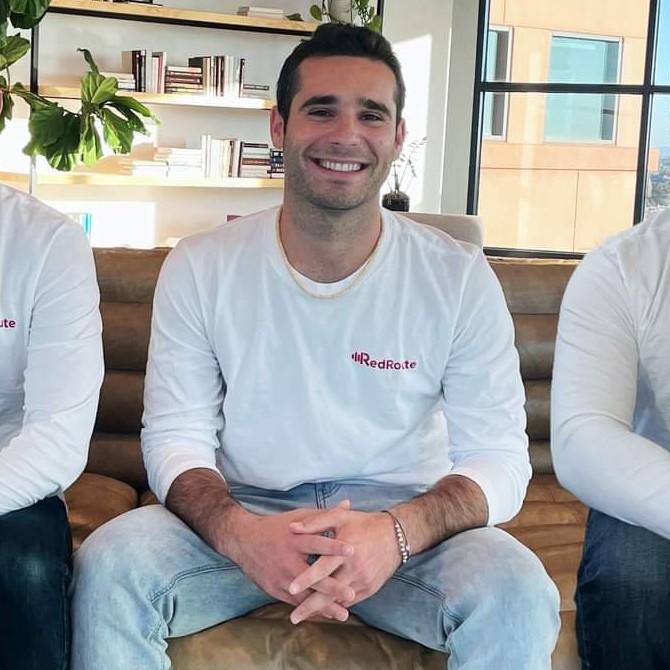
Brian Schiff
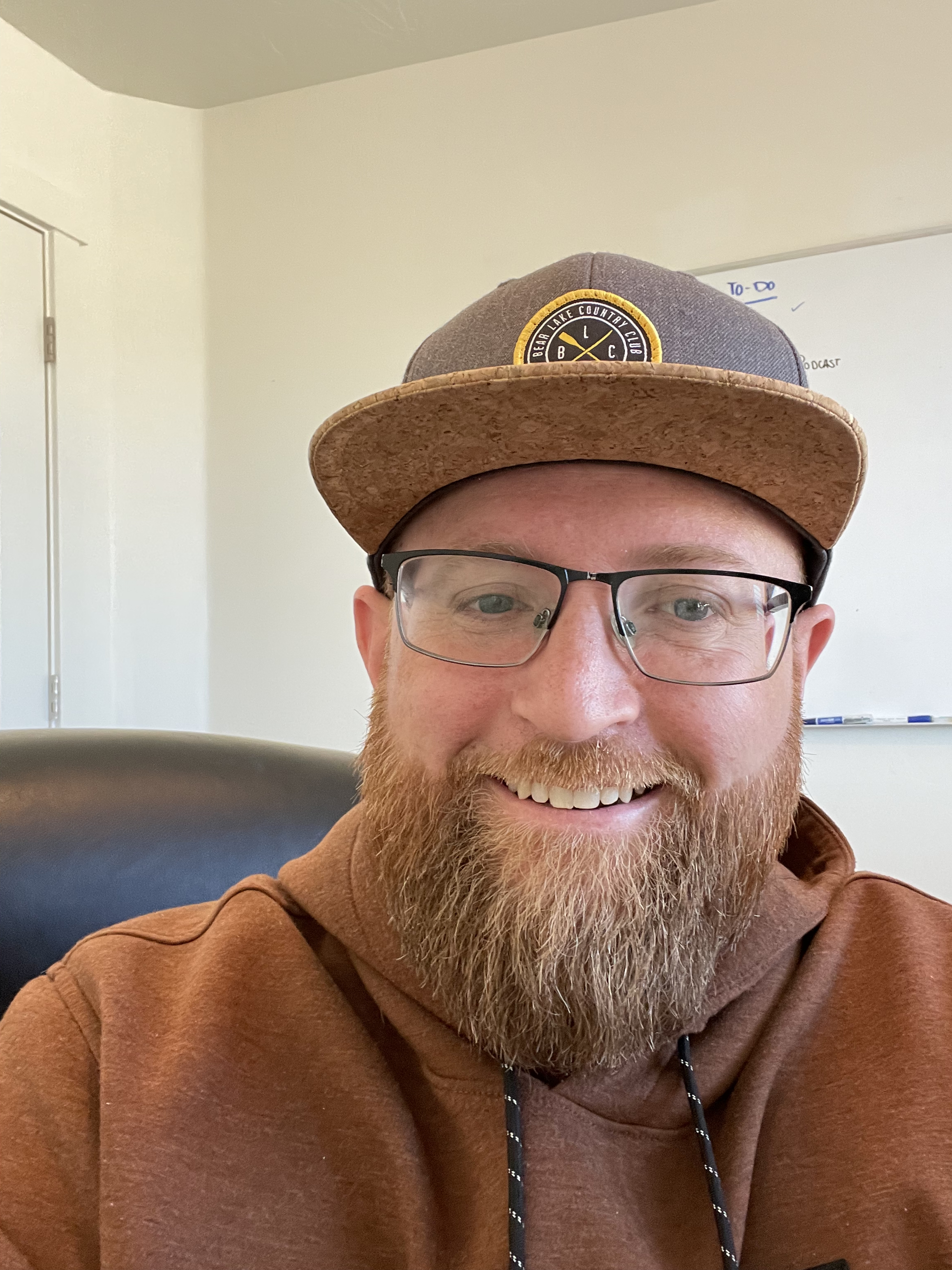
James Gilbert
Today's Guests
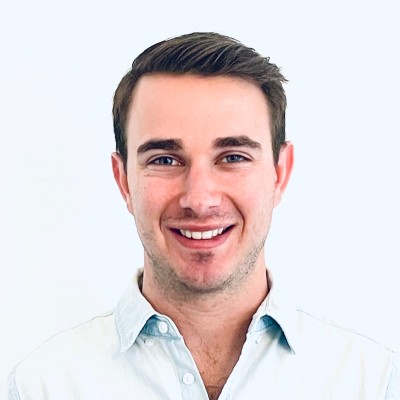
Samuel Krut
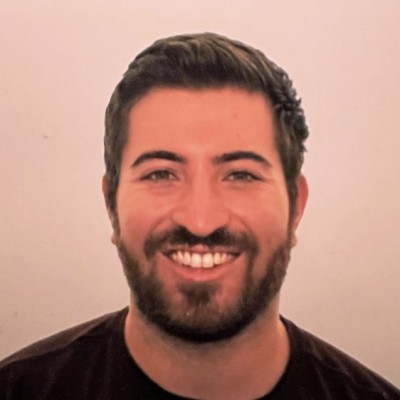
Jacob Cooper
